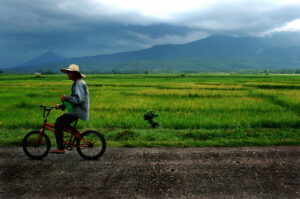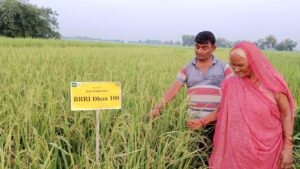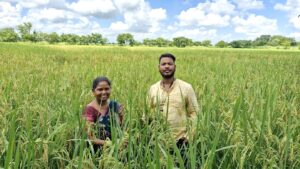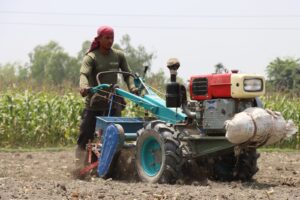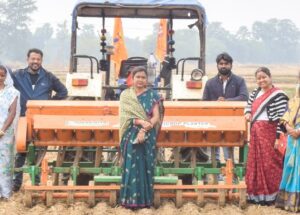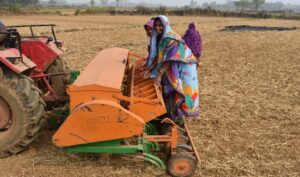Randy Barker, IRRI agricultural economist and head, Economics Department, 1966-78; acting head, Social Sciences Division, 2007-08
When I first came to IRRI in 1966 just before IR8, people at that time looked at IRRI and said, “that’s a nice set of buildings,” but they didn’t think the Institute would ever produce anything. There was a real skepticism about whether IRRI would ever amount to much. Joining IRRI was like buying into a stock that all of a sudden took off.
In the early days, the IRRI mandate was fairly simple and straightforward, increase rice production in Asia, and so the focus and the priorities were there. Since that time, we’ve gone from food security to environment and poverty and other areas. So, in many ways, the mandates of IRRI and of the other centers tended to expand.
The real challenge now is being sure that IRRI operates in the area where it has the greatest comparative advantage. For example, the challenge for upstream work is to have the appropriate connections with the advanced institutions for developing biotechnology research. When going downstream, this means, in part, the ability to transfer some of that biotechnology expertise and focus it on those areas that will complement what the NARES [national agricultural research and extension systems] are doing.
Nyle C. Brady, IRRI director general, 1973-81
I think IRRI needs to make effective use of biotechnology and other modern research tools to help the plant breeders develop rice lines that efficiently utilize plant nutrients, that tolerate adverse conditions such as drought, and that are resistant to insects and diseases, thereby reducing the need for pesticides.
To do this, IRRI must have linkages with scientists in both the developing and the more developed countries. This is an advice which the whole CGIAR [Consultative Group on International Agricultural Research] system could accept. I recognize the political reasons why this is difficult because some countries don’t want biotechnology to be used for this purpose. But the developing countries need the improved crops much more than we do in the U.S. So, I think this is the direction in which IRRI and other such centers should and could go. IRRI must also continue to push what it has been doing lately—more after I left than when I was there—to recognize the consequences of what we do to the environment in terms of pesticide use—and fertilizer use, that is, nitrogen getting into the water causing troubles later on. This is being done, but I think even more can be done. I think this is an opportunity for IRRI to develop high yields of quality rice in such a way that the soil, water, and atmosphere will not be adversely affected.
_______________________________________
Mr. Hettel is the editor-in-chief of Rice Today

